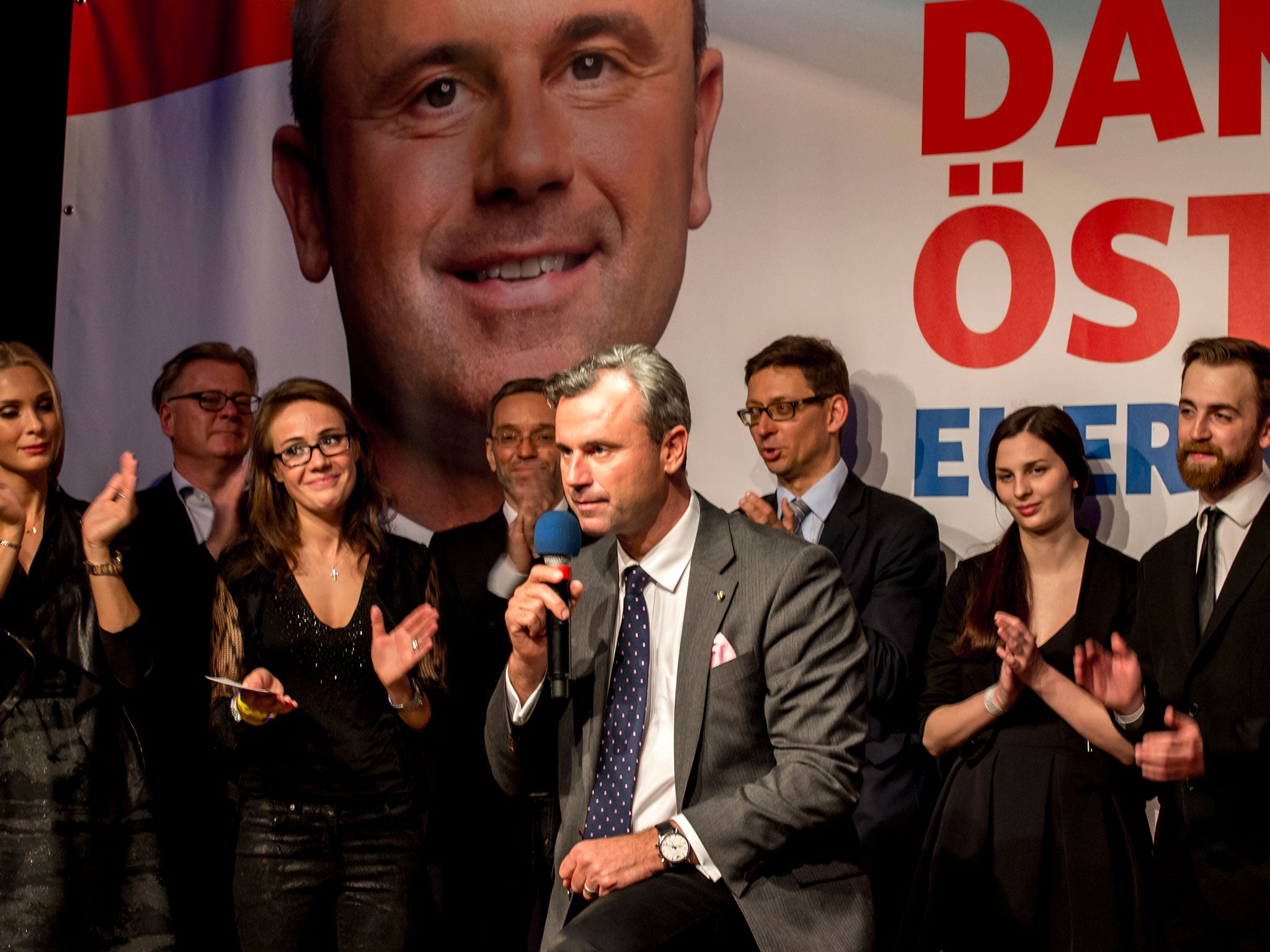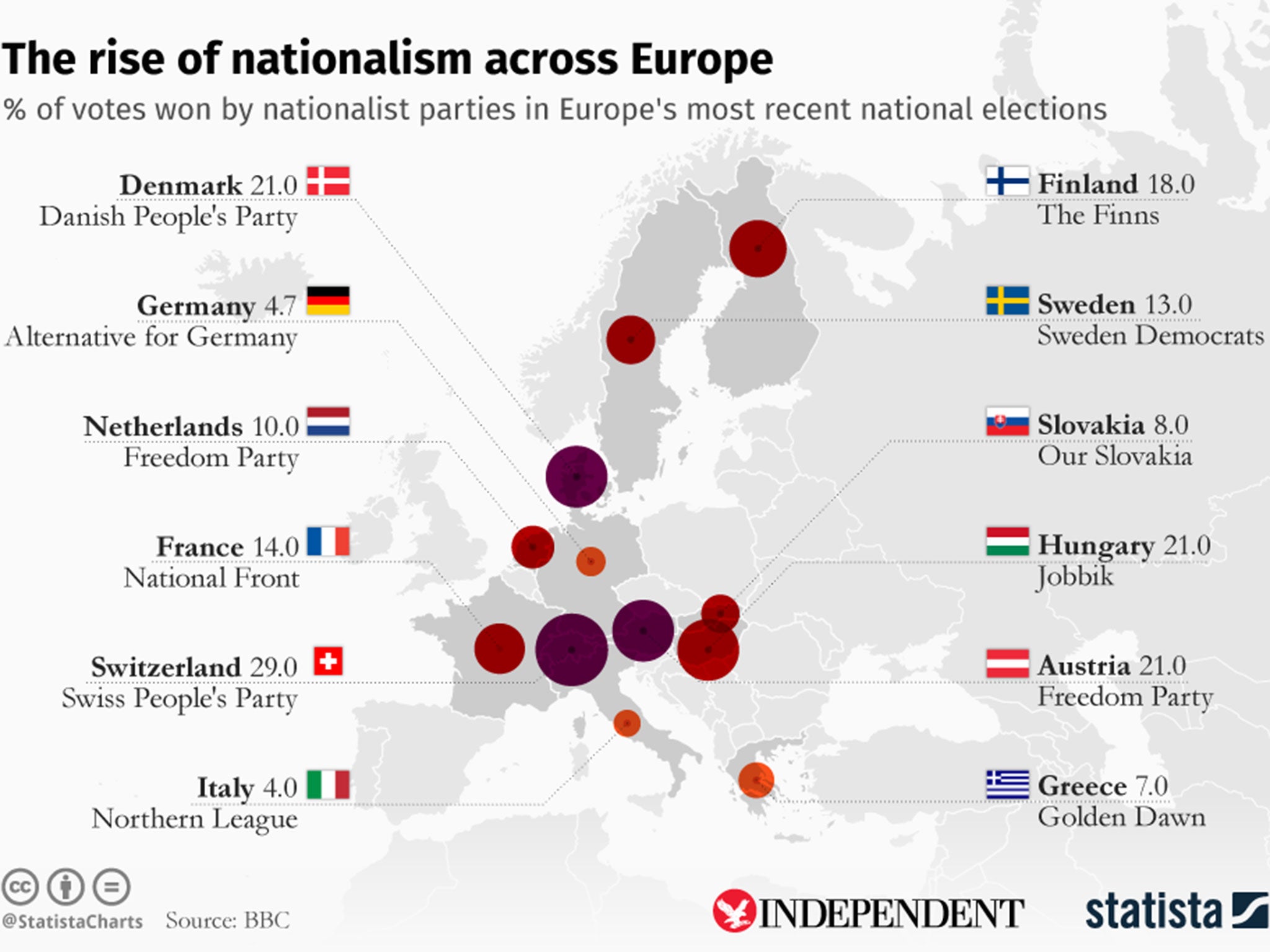The most far-right countries in Europe, mapped
Austria narrowly avoided becoming the first country in the EU to vote in a far-right head of state

Austria has elected a former leader of the Greens party as its next president, narrowly avoiding becoming the first country in the European Union to vote in a far-right head of state.
However, nationalist parties are becoming increasingly popular across Europe amid rising concerns about the ongoing refugee crisis.
As the chart by Statista shows, Switzerland had the highest per cent of votes won by nationalist parties in its most recent national election.

The Swiss People's Party won 29 per cent of the vote, and was followed by nationalist parties in Austria, Hungary and Denmark, which came joint second.
In those countries, Austria's Freedom Party, Hungary's Jobbik and Denmark's Danish People's Party received 21 per cent of the vote in the latest national elections.
The closeness of the vote in Austria has unsettled leaders elsewhere in Europe, particularly neighbouring Germany, where a new anti-immigration party, the Alternative for Germany (AfD), is on the rise.
In France, Marine Le Pen's National Front is leading the polls ahead of a presidential election next year. The party previously won 14 per cent of the vote.
In the UK, Ukip is campaigning for Britain to leave the EU in a referendum on 23 June.
Join our commenting forum
Join thought-provoking conversations, follow other Independent readers and see their replies
Comments
Bookmark popover
Removed from bookmarks